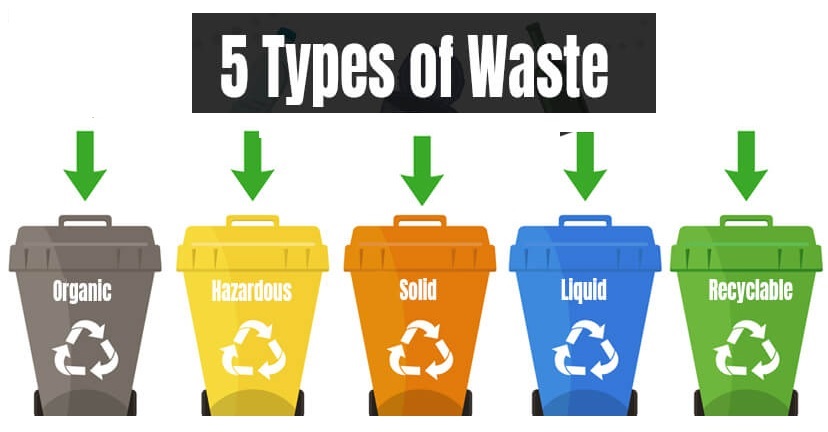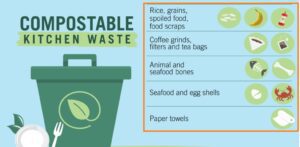Kitchen Waste Management
- Types of pollution discussed in the previous post.
- Kitchen waste management is an important aspect of maintaining a healthy and sustainable home environment
- With increasing concerns over climate change and environmental degradation, it is crucial that we take steps to reduce the amount of waste that we produce, particularly in the kitchen where a significant amount of waste is generated on a daily basis.
- The first step in effective kitchen waste management is to minimize the amount of waste that is produced. This can be achieved through a variety of methods, such as meal planning and preparation, using reusable containers and bags, and buying in bulk to reduce packaging waste
- By being mindful of the items that we purchase and consume, we can significantly reduce the amount of waste that we produce.
Food Wastage is Global Issue
- Worldwide more waste is produced due to improper food management. United Nations have been putting efforts to reduce the food wastage
- Worldwide, one-third of food (30%) produced is thrown out or uneaten. This causes a huge burden on the environment. High-population countries like South Asia, Pakistan, African countries, and Middle countries do not enough food to eat both times a day. Malnutrition and hunger have been issues in these countries
- Some communities have been established to reduce food waste
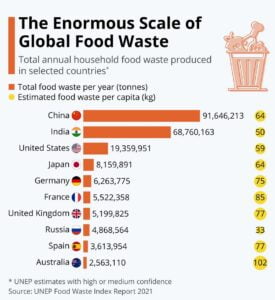
- India and China have more population but more people are hungry. But more food wastage is observed
Main Reason for Food Wastage
Kitchen food waste is any food material that is discarded or thrown away from a kitchen or food preparation area. This waste can come from various sources, including cooking, food preparation, and meal consumption. Kitchen food waste is a significant contributor to the overall food waste problem, and reducing it can have significant environmental and economic benefits. Here are some common sources of kitchen food waste and ways to reduce it:
Over-purchasing and Expired Food
- One of the primary sources of kitchen food waste is over-purchasing and expired food
- This can happen when you buy more food than you need, and it goes bad before you have a chance to use it
- To avoid this, make a shopping list before you go to the store and only buy what you need
- Additionally, check the expiration dates of products before purchasing them, and prioritize using those with the shortest shelf life first.
Uneaten Food
- Another source of kitchen food waste is uneaten food. This can occur when you cook too much food or when leftovers are not eaten
- To prevent this, plan your meals ahead of time, measure out portions when cooking, and save leftovers for future meals.
Food Preparation Scraps
- Food preparation scraps, such as vegetable peels, trimmings, and bones, are another source of kitchen food waste
- To reduce this, use these scraps to make stocks, soups, and broths. Alternatively, you can compost them and use the resulting soil to grow plants.
Improper Food Storage
- Improper food storage can also lead to kitchen food waste. When food is not stored properly, it can go bad more quickly, leading to waste. To prevent this, store food in the appropriate conditions. For example, keep fruits and vegetables in the refrigerator, and store dry goods in a cool, dry place.
- Reducing kitchen food waste is an essential aspect of sustainable living. By being mindful of our food purchases, planning meals ahead of time, using leftovers, and properly storing food, we can significantly reduce our kitchen food waste. These actions not only help to conserve resources but also save money and contribute to a healthier planet.
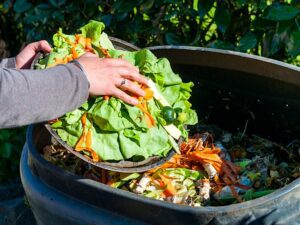
The technique of Waste Management
Managing kitchen waste is an important aspect of living a sustainable lifestyle. With increasing concerns about the environment, it’s essential to understand the proper ways to manage kitchen waste. Here are some tips for kitchen waste management.
Kitchen waste management is an essential aspect of sustainable living. Every day, households generate a significant amount of waste, and most of it ends up in landfills, contributing to environmental degradation. However, with proper kitchen waste management, we can reduce waste, conserve resources, and protect the environment.
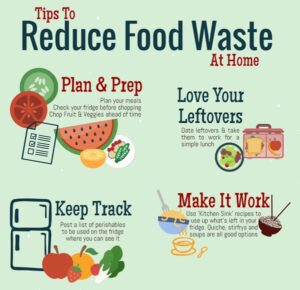
Here are some tips on how to manage kitchen waste effectively:
Composting
- Composting is an excellent way to manage kitchen waste. It involves creating a pile of organic waste, such as food scraps, and allowing it to decompose into nutrient-rich soi
- Composting not only reduces waste but also produces compost, which can be used to enrich soil for plants
- To start composting, designate a compost bin in your backyard or balcony. Collect organic waste, such as fruit and vegetable scraps, coffee grounds, eggshells, and yard waste, and add them to the bin. Avoid adding meat, dairy, or oily foods as they can attract pests and slow down the composting process. Turn the pile occasionally and keep it moist. Within a few months, you will have nutrient-rich compost that can be used to fertilize your plants.
Reduce Food Waste
- Reducing food waste is another essential aspect of kitchen waste management
- According to the Food and Agriculture Organization, around one-third of the food produced in the world is wasted, contributing to greenhouse gas emissions, water waste, and environmental degradation
- To reduce food waste, plan your meals and shop accordingly. Buy only what you need and use leftovers for the next meal. Freeze excess food or donate it to food banks or shelters. Also, learn to cook with ingredients that are about to expire, rather than throwing them away.
Recycling
- Recycling is another way to manage kitchen waste effectively
- Many items, such as glass, metal, and plastic containers, can be recycled, reducing the amount of waste that ends up in landfills.
- To recycle effectively, check with your local recycling facility to see what materials they accept
- Rinse containers before recycling and remove any caps or lids. Also, avoid recycling materials that are contaminated with food waste or other non-recyclable materials.
Use Eco-Friendly Products
- Using eco-friendly products in your kitchen is an excellent way to reduce waste and protect the environment
- For instance, instead of using paper towels, opt for washable clothes
- Use reusable containers for food storage and reusable bags for shopping. Also, avoid single-use plastic products, such as straws and utensils, and switch to reusable alternatives
- In conclusion, managing kitchen waste is crucial for sustainable living
- By composting, reducing food waste, recycling, and using eco-friendly products, we can reduce waste, conserve resources, and protect the environment. Remember, every small step we take towards reducing waste counts, and together, we can make a difference in the world.
Use Reusable Containers and Bags
Using reusable containers and bags is an effective way to reduce waste in the kitchen. Instead of using plastic bags and wrap, invest in reusable containers and silicone storage bags. These items can be used repeatedly and are more sustainable than single-use plastics.
Create a Waste Management System
Creating a waste management system is a great way to keep your kitchen organized and reduce waste. Consider setting up separate bins for composting, recycling, and garbage. Label the bins to make it easy to know what goes where.
How to reduce food wastage in Home
Food waste is a significant problem worldwide, with about one-third of all food produced going to waste. This is not only a waste of resources but also has significant environmental implications, as decomposing food waste produces greenhouse gases that contribute to climate change. Fortunately, there are many things that individuals can do to reduce food waste. Here are some tips on how to reduce food waste at home:
Plan Your Meals
Planning your meals is one of the most effective ways to reduce food waste. Before you go grocery shopping, take a few minutes to plan out your meals for the week. This will help you buy only what you need and avoid buying too much food that may go to waste.
Buy only needful
Once you have planned your meals, make a shopping list and stick to it. Avoid impulse buying, and don’t be swayed by discounts or promotions for items that you don’t need.
Store Food Properly
Proper food storage can help prevent food waste. Keep perishable items, such as fruits and vegetables, in the refrigerator to extend their shelf life. Use airtight containers to store leftovers, and label them with the date to help you remember when they were cooked.
Use Leftovers
- Instead of throwing away leftovers, use them to create new meals
- For example, leftover rice can be used to make fried rice, and leftover vegetables can be added to soups or stews. You can also freeze leftovers for later use.
Use Scraps
- Many food scraps can be used to make delicious meals
- For example, vegetable scraps can be used to make stock, and stale bread can be turned into breadcrumbs or croutons.
Know When Food is Safe to Eat
- Expiration dates on food products are not always accurate. Use your senses to determine whether food is still safe to eat
- For example, milk may still be good for a few days after its expiration date if it smells and tastes fresh.
- Reducing food waste requires a combination of planning, proper storage, and creativity
- By following these tips, you can help reduce food waste at home and contribute to a more sustainable future.
Summary
- In conclusion, managing kitchen waste is essential to living a sustainable lifestyle
- By reducing food waste, composting, recycling, donating excess food, using reusable containers, and creating a waste management system, you can reduce your impact on the environment and help protect our planet.
